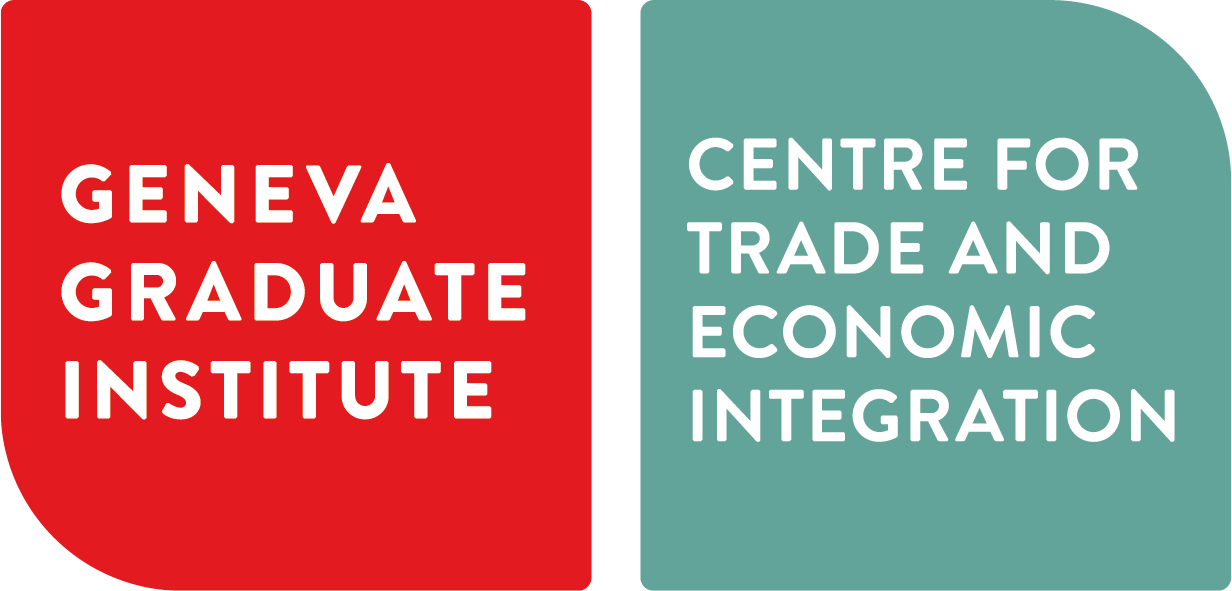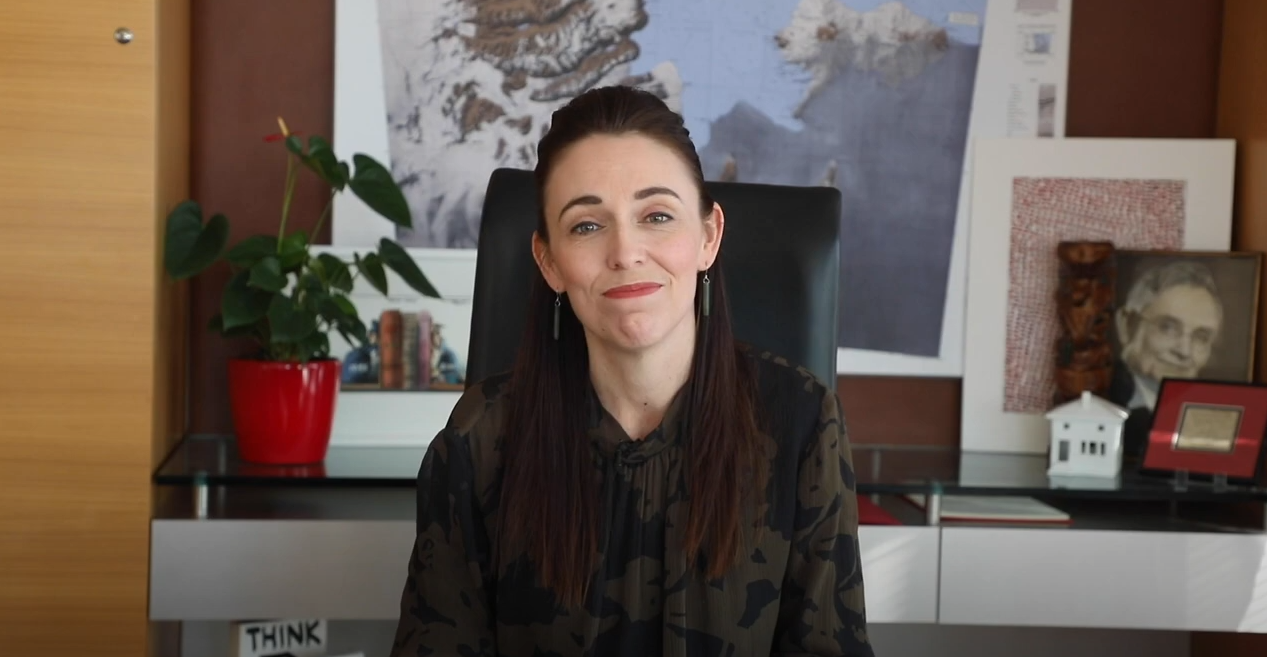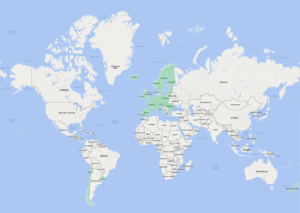We seek the rationalization and phase out of inefficient fossil fuel subsidies that encourage wasteful consumption along a clear timeline and encourage the remaining WTO Members to join us in those efforts, recognizing the substantial financial resource this could unlock globally to support the transition;
At the 2017 Ministerial Conference, New Zealand and eleven other WTO Members¹ delivered a statement at the encouraging the rationalization and phase out of inefficient fossil fuel subsidies that encourage wasteful consumption.
The statement recognized that reform needs to take into account the specific needs and conditions of developing countries and minimize the possible adverse impacts on their development. The statement also recognized the importance of the WTO as a forum to advance discussions to achieve ambitious and effective disciplines on fossil fuel subsidies, including through enhanced transparency and reporting to enable the evaluation of the trade and resource effects of fossil fuel subsidies programmes.
Since then, New Zealand and other Members have worked to build momentum and consensus for this initiative and are working toward a renewed version of this statement for MC12.
The goal is to increase dialogue, information sharing and exchanges at the World Trade Organization on this issue, which it is hoped will eventually evolve into momentum toward the phase out of inefficient fossil fuel subsidies that encourage wasteful consumption in a manner that takes fully into account the specific needs and conditions of developing countries and minimizes the possible adverse impacts on their development in a manner that protects the poor and the affected communities;
¹ Chile; Costa Rica; Iceland; Liechtenstein; Mexico; the Republic of Moldova; New Zealand; Norway; Samoa; Switzerland; the Separate Customs Territory of Taiwan, Penghu, Kinmen and Matsu; and Uruguay.
The following WTO Members have signed on to the draft Ministerial Declareration on Fossil Fuel Subsidy Reform for MC12:
Albania; Austria; Belgium; Bulgaria; Chile; Colombia; Costa Rica; Croatia; Cyprus; Czech Republic; Denmark; Estonia; European Union; Fiji; Finland; France; Germany; Greece; Hungary; Iceland; Ireland; Italy; Latvia; Liechtenstein; Lithuania; Luxembourg; Moldova, Republic of; Montenegro; Netherlands; New Zealand; North Macedonia; Norway; Panama; Paraguay; Poland; Portugal; Romania; Samoa; Slovak Republic; Slovenia; Spain; Sweden; Switzerland; Tonga; United Kingdom; Uruguay; Vanuatu;
Statement of New Zealand on Behalf of the Signatories to the Statement on Fossil Fuel Subsidy Reform at MC11
Date: 3 July 2020
Member: New Zealand, on behalf of 12 Members
Document: JOB/TE/64
Our summary:
In this statement the signatories confirm their intention to seek the rationalisation and phase out of inefficient fossil fuel subsidies that encourage wasteful consumption and shared an update on progress since December 2017.
-
UNDP - Fossil fuel subsidies reform could limit climate change while tackling global inequalities. Here's how. Authors: Pradeep Krukulasuriya and George Ronald Gray
In this blog, the authors lay out and advocate for several options to phase out harmful fossil fuel subsidies, in which the first step is to identify ways to repurpose fossil fuel subsidies reforms in a way that reduces poverty and inequalities and is progressive, socially just and economically fair.
-
QUNO - Fossil Fuel Subsidy Reform: What Role for the World Trade Organization? Authors: Joachim Monkelbaan and Ronald Steenblik
This briefing paper provides information on Fossil Fuel Subsidies (FFS) and their relationship with trade and trade rules that can help inform discussions on possible action at the WTO, in particular in the TESSD.
-
IISD - Can the WTO Tackle Fossil Fuel Subsidies Effectively? Yes, but something needs to change Authors: Harro van Asselt and Tristan Irschlinger
This blog argues that while much of the energy component of Covid-19 recovery funding was spent on fossil fuel subsidies, there are positive signals suggesting a way forward on curbing, limiting and eventually eliminating such practices.
-
Nordic Co-operation - Fit for Purpose? Toward trade rules that support fossil fuel subsidy reform and the clean energy transition Authors: Harro van Asselt and Tom Moerenhout
This report explores whether WTO subsidy rules and practices are fit for purpose in addressing fossil fuel subsidies and supporting the clean energy transition, and how these rules and practices could be reformed to more effectively contribute to these important objectives. It also offers practical suggestions on what next steps could look like for WTO members and other stakeholders interested in moving this agenda forward.
-
IISD - Exploring the Trade Impacts of Fossil Fuel Subsidies Authors: Tom Moerenhout and Tristan Irschlinger
In recent years, growing attention has been given in various contexts to fossil fuel subsidies and the need to reform them. Discussion on the topic, however, has focused almost exclusively on the environmental impacts of these support measures. This paper focuses on another, much less explored aspect: the trade impacts of fossil fuel subsidies. Despite the obvious trade implications that fossil fuel subsidies can have, those impacts have not yet been discussed in detail.
-
ICTSD - Fossil Fuel Subsidies Reduction and the World Trade Organization Author: Joel P. Trachtman
This paper develops the broad contours of an ambitious approach to fossil fuel subsidy reform using the multilateral trade system.
-
ICTSD and WEF - Fossil Fuel Subsidies Reform in the WTO: Options for Constraining Dual Pricing in the Multilateral Trading System Author: Anna Marhold
This paper discusses the practice of dual pricing in the broader context of fossil fuel subsidy reform. In view of climate change mitigation, the World Trade Organization (WTO) should contribute to this reform and play an active role in curbing and phasing out such environmentally harmful subsidies. The paper explores avenues for constraining dual pricing within the framework of the WTO by proposing options under existing rules, as well as suggesting changes to the system beyond current WTO rules.
-
IISD - Shining a Light on Fossil Fuel Subsidies at the WTO: How NGOs can contribute to WTO notification and surveillance Authors: Liesbeth Casier, Robin Fraser, Mark Halle and Robert Wolfe
Disciplines on energy subsidies are weak, but the World Trade Organization (WTO) could offer more analysis and opportunities for discussion of reform. The first step is making more information available about fossil fuel subsidies. This paper offers a proposal on how to achieve that objective.
[Proposed] Fossil Fuel Subsidies Reform Ministerial Statement (MC12)
The following proposed Ministerial statement was circulated in unrestricted format to Members on 18 November 2021 as JOB/GC/264/Rev.3.
Signatories
We, the Ministers representing the following Members of the World Trade Organization (WTO): […]¹ issue this statement at the WTO’s Twelfth Ministerial Conference (MC12):
¹ Currently, the list stands at: Chile, Costa Rica, the European Union (+27), Fiji, Iceland, Liechtenstein, the Republic of Moldova, Montenegro, New Zealand, Norway, Switzerland, Tonga, the United Kingdom, Uruguay and Vanuatu.
Preamble
1. Recognizing that inefficient fossil fuel subsidies encourage wasteful consumption, disadvantage renewable energy, and depress investment in energy efficiency, and that effectively addressing fossil fuel subsidies will deliver trade, economic, social and environmental benefits as well as release government funds to support a green and climate-resilient COVID-19 recovery;
2. Recalling our Leaders’ commitment to fossil fuel subsidy reform under the Sustainable Development Goal 12 (c) of the 2030 Agenda, and recognizing that a growing number of World Trade Organization (WTO) Members have made further pledges under the auspices of the G20, G7, APEC and V20, and in the context of the Paris Agreement on Climate Change and the Addis Ababa Action Agenda on Financing for Development;
3. Recognizing that subsidies have continued to steadily increase in the past decade and were estimated at approximately USD 500 billion in 2019, and diverting funding from such subsidies will support a just transition towards a green, sustainable economy;
4. Recognizing that a phase out of fossil fuel subsidies would effectively contribute to the Paris Agreement objective of holding the increase in global average temperature below 2°C above pre-industrial levels, and would continue towards pursuing efforts to limit the temperature increase to 1.5 °C above pre-industrial levels and will deliver lower climate-related global risks as outlined by the 2018 Intergovernmental Panel on Climate Change Special Report on Global Warming of 1.5°C;
5. Further recognizing the significant potential for a fossil fuel subsidy phase out to support the Paris Agreement goal of making public financial contributions consistent with a pathway towards low greenhouse gas emissions and climate-resilient development.
6. Acknowledging that accelerating the reform of fossil fuel subsidies is therefore more urgent than ever;
7. Considering that sustainable development is a fundamental principle of the Marrakesh Agreement establishing the World Trade Organization and that trade has been explicitly identified as a powerful enabling force that is indispensable in progress toward sustainable development;
8. Confirming, therefore, that the World Trade Organization can play a central role in the reduction of trade and investment distortions caused by fossil fuel subsidies by achieving effective disciplines on inefficient fossil fuel subsidies ;
Shared Understandings Reached:
We have accordingly reached the following shared understandings:
Rationalisation and Phase out
Developing Country Conditions
We recognize that reform needs to take fully into account the specific needs and conditions of developing countries and minimize the possible adverse impacts on their development in a manner that protects the poor and the affected communities;
Information Sharing, Transparency and Best Practice
We will share information and experiences to advance discussion in the World Trade Organization aimed at achieving ambitious and effective disciplines on inefficient fossil fuel subsidies that encourage wasteful consumption, including through enhanced World Trade Organization transparency and reporting that will enable the evaluation of the trade, economic, and environment effects of fossil fuel subsidy programmes;
WTO and MC13
We will elaborate concrete options to advance this issue at the World Trade Organization in advance of MC13.




